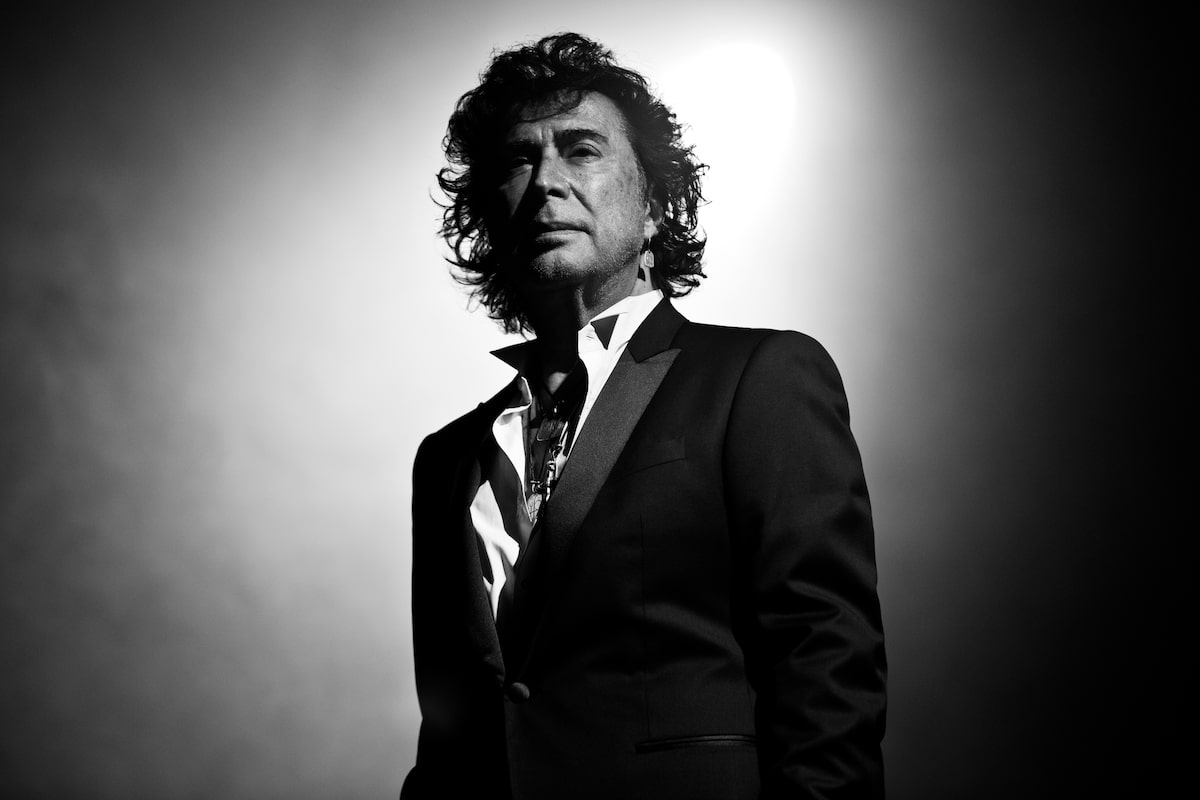At Toronto’s Meridian Arts Centre on Oct. 17, Andy Kim, Gino Vannelli, Jane Siberry, Ian Thomas and the three members of the rock band Triumph will be ushered into the Canadian Songwriters Hall of Fame. The Globe and Mail asked each of the inductors to select a song written by the songwriter they are inducting and pose a question.
Murray McLauchlan asks his Lunch at Allen’s bandmate Ian Thomas about the 2010 song, Waiting for the Sunrise
Ian Thomas.José Crespo/Supplied
Lyrically, the song exposes the thoughtful, introspective and deeply romantic side of Ian that he only reveals when he writes. My question to Ian: You are certainly among the funniest people on the planet and yet there is this other Ian; philosophical, contemplative and deeply sentimental. How do you square the two?
Thomas responds: “When it comes to songwriting, there is a deep-seated sense of gratitude. Every sunrise can be an amazing thing – it’s a door opening to a new day. As for laughter and philosophy, I think those things are connected.
It’s about joy. It’s in birds’ songs. It’s in the unconditional love of a dog. There’s such joy in sentience, and that’s present in my songs. Even the silly songs, just for the sake of that. I think, ‘Alright, maybe I went deep on the last song, so here’s a song that’s totally ridiculous.’ I love the absurd. If it wasn’t for laughter, I believe we would implode.”
k.d. lang asks Jane Siberry about 1999’s The Valley
Jane Siberry.SOCAN Archives/Supplied
Why this song resonates with me is why all Jane Siberry’s music resonates with me, and that is, very simply, her stunning comprehension of humanity in her lyrics. Jane, did you know this was a masterpiece when you wrote it?
Siberry responds: “Actually, I called my mom after I wrote it, and said, ‘Mom, I did a good thing. I earned myself a few more years in this life.’ I don’t perform The Valley live very much. It’s hard for me to sing. k.d. does a very beautiful version of it. She called my mom’s house one time when we were having a family dinner. My mom asked, ‘Who’s calling?’ k.d. said, ‘k.d. lang.’ My mom said, ‘Yes, and I’m the queen of England,’ and hung up.”
Tom Cochrane asks Triumph’s Rik Emmett about 1981’s Magic Power
Triumph has always been inspirational rock, especially for the kids. Rik, were you, as the song goes, young, wild, and free? And in what way?
Emmett responds: “For Magic Power, I was embodying the kid I had been, listening to the radio. Then I just changed the pronouns to ‘her’ and ‘she.’ Was I young, wild and free? Certainly, the person people saw on stage running around in stage clothes that are now questionable when you’re in your seventies wasn’t thinking about what it would be like to grow old and going into a hall of fame.
“When I was writing the song, I was thinking about the magic Johnny Mercer wrote about in That Old Black Magic. My mom would sing that song around the house. There was a magic power that existed in songs. I was also thinking about the Lovin’ Spoonful’s Do You Believe in Magic, written by John Sebastian. Magic Power is a different kind of song, but I think songs are incredible because they take on so many shapes and styles and come in so many different flavours. I think the magic may be in finding the universal vantage point and putting it in whatever forms suits it.”
Barenaked Ladies’ Ed Robertson asks Andy Kim about 1974’s Rock Me Gently
Andy, what is your relationship with Rock Me Gently and your other hits? Many artists are embarrassed by their hits. Did you ever struggle with them?
Kim responds: “Why would I be embarrassed by God’s songwriting angels tapping me on the shoulder and writing Sugar, Sugar or Rock Me Gently? Why would anybody feel funky about that? I have no idea.
“Maybe for some artists to have a hit record is not a badge of honour. But I feel lucky and blessed to even be a part of this whirlwind that allows me to get on stage to perform, to travel, to do all of this stuff.”
Canadian record producer and music publisher Frank Davies asks Gino Vannelli about 1978’s Wheels of Life
Gino, you were 26 years old when you recorded this song, and yet it displays a lyrical and thematic maturity for a popular, commercial music artist of that age. Did you already have a concern or fear of time passing you by or of death or dying or losing loved ones? I see these references to time and the love of family running through a number of your songs.
Vannelli responds: “I remember writing it in 1976. It was 2 or 3 o’clock in the morning. My wife, Tricia, was sleeping. I had to wake her up to show her the song. She was all sleepy eyes – she looked like a Sleeping Beauty. She was 21 or 22 years old. I played it for her on my electric piano, which I brought into the bedroom.
“As for the question about my maturity, part of me was very precocious, but part of me was very naive. I liked poetry and books on philosophy at a very young age. The ideas about the passage of time often ran across my mind and I always thought to put them to music. It continues to be a fascinating topic. It’s a journey, the human ordeal.”
[Gino Vanelli’s 2025 album, The Life I Got (To My Most Beloved), was written as his wife, Patricia Vannelli, was dying of cancer.]
